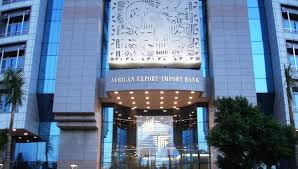Ghana is currently embroiled in a significant dispute with the African Export-Import Bank (Afreximbank) concerning the restructuring of a $768.4 million debt. This disagreement has emerged as a critical issue following Ghana’s recent efforts to manage its external debt obligations.
The Ghanaian Ministry of Finance is advocating for the inclusion of Afreximbank’s loan in the broader debt restructuring framework, similar to the treatment accorded to other creditors. This approach involves measures such as extending payment deadlines, reducing interest rates, or accepting partial losses to facilitate the country’s economic recovery.
However, Afreximbank maintains that it holds “preferred creditor status,” a designation typically reserved for institutions like the International Monetary Fund (IMF) and the World Bank. This status implies that their loans are prioritized for repayment and are generally exempt from restructuring processes.
Finance Minister Cassiel Ato Forson has publicly stated that Ghana does not recognize Afreximbank’s claim to preferred creditor status. He emphasized that the bank’s debt should be subject to the same restructuring terms as other commercial obligations.
This contention has broader implications, potentially affecting Ghana’s overall debt resolution strategy and setting a precedent for how regional lenders are treated in similar situations. The dispute also highlights the complexities involved in coordinating debt restructuring efforts among diverse creditors with varying claims and statuses.
The outcome of this disagreement is being closely monitored by international financial institutions and other nations facing similar debt challenges. It underscores the need for clear guidelines and cooperative frameworks to address sovereign debt issues effectively
